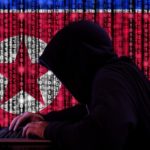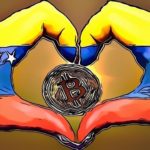- Telecommunications Giant Vodafone Leaves the Libra Association
- Group of Central Banks Assesses Developing Central Bank Digital Currencies
- South Korea Might Impose 20 Percent Tax on Cryptocurrency Profits
- Report: Terrorists Increasingly Use Crypto to Raise Funds Anonymously
- Canadian Securities Administrators Subject Crypto Exchanges to Securities Laws
Intelligence Experts: North Korea Exploits Cryptocurrency to Bypass Sanctions

While cryptocurrencies are rapidly adopted in democratic countries by a growing number of people, organizations and governments, it seems that digital currencies are employed as well by the most ostracized and authoritarian regimes in the world – for very different reasons.
According to analysis of two distinguished American intelligence experts, the North Korean dictatorial regime has been utilizing cryptocurrencies and their unique decentralized characteristics to bypass the heavy sanctions imposed on the autocratic state. They also added that via cryptocurrencies, the Democratic People’s Republic of Korea (any connection to democratic is purely coincidental) even manages to obtain access to the American financial system.
International criminals everywhere prefer crypto-currencies and the DPRK is no exception. Crypto-currencies have the added advantage to the DPRK of giving them more ways to circumvent US sanctions. They can do so by using multiple international exchangers, mixing and shifting services – mirroring the money laundering cycle – to exploit international financial institutions that have correspondent banking relationships with the United States.
The two independent experts, Lourdes Miranda and Ross Delston, speculate that it is probable that the North Koreans not only buy/sell cryptocurrency in order to outflank the sanctions, but might also virtually mint their own digital currency. The main advantage of creating a cryptocurrency is control: if the virtual asset’s creators hold administrator privileges over the different aspects of the cryptocurrency, they can alter its blockchain data to conceal illicit transactions. Miranda and Delston further conjecture that the North Korean regime also generates a bunch of other crypto-related products and services under the guise of a different, Western-friendly, state to launder money.
Another theorized method to mask the root source of the funds is a switch and conversion between different cryptocurrencies.
Once DPRK split its Bitcoin using multiple international mixing services, it could use shifting services to convert its Bitcoin into another popular crypto-currency such as Ethereum and/or Litecoin to break the linear pattern of transactions on the blockchain to obscure the origin of funds.
Lastly, the North Koreans use fake European accounts in crypto exchanges to convert the digital currency to fiat currency such as the dollar.
According to a growing number of accounts, North Korea has been dabbling in cryptocurrency for quite some time. Among other reports, the North Korean isolated regime might have obtained under the table as much as 11,000 Bitcoins; additionally, the regime have a bizarre plan to host a global crypto conference in October, although it’s unclear who will actually participate in such an event in the most secluded and tyrannical nation on the planet.
Digital favorites
- Siti Di Scommesse
- Casino Bonus Senza Deposito Immediato
- Best Casinos Not On Gamstop
- Casinos Not On Gamstop
- UK Casinos Not On Gamstop
- Non Gamstop Casinos
- UK Casinos Not On Gamstop
- Casino Not On Gamstop
- Non Gamstop Casino
- Slots Not On Gamstop
- Meilleur Casino En Ligne France
- Gambling Sites Not On Gamstop
- オンライン カジノ おすすめ
- Gambling Sites Not On Gamstop
- Non Gamstop UK Casinos
- UK Casino Sites Not On Gamstop
- UK Casinos Not On Gamstop
- Non Gamstop Casinos UK
- Non Gamstop Casino Sites UK
- Best Slot Sites
- UK Online Casinos Not On Gamstop
- Best Non Gamstop Casino
- Best Sports Betting Sites Not On Gamstop
- Meilleur Casino En Ligne
- Migliori Casino Online
- Meilleur Site De Casino En Ligne
- Pari Sportif Belgique
- Siti Casino
- Meilleur Site De Paris Sportif International
- 익명 카지노
- Fm 카지노
- Casino Sans Verification
- Real Money Casino App No Deposit
- Siti Non Aams Bonus Senza Deposito
- Casino Non Aams
- Meilleur Casino En Ligne Belgique
- Site De Poker
- Casino En Ligne 2026
- Meilleur Casino En Ligne 2026
- Casino Online Non AAMS




